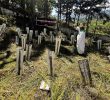MANILA — The Supreme Court will train the first batch of Regional Trial Court (RTC) judges who will handle cases involving killings of political activists and media members during an extensive seminar-workshop at the Manila Pavilion Hotel along United Nations Avenue, Ermita, Manila on May 7 and 8.
The Seminar-Workshop for Judges on Extrajudicial Killings and Enforced Disappearances will be conducted by the Philippine Judicial Academy (PHILJA), the SC�s education arm, in partnership with the Commission on Human Rights (CHR). It aims to address the concerns of Special Courts Judges on the procedure to identify and decide cases on extrajudicial killings.
The first batch of judges-participants come from the National Capital Judicial Region and the First and Second Judicial Regions. The schedule for the two other batches will be announced later.
Chief Justice Reynato S. Puno will address the participants during the closing ceremonies. The lecturers in the seminar-workshop are experts in the field of International Law, Human Rights Law, and Humanitarian Law. They include Justice Adolfo S. Azcuna, CHR Director Purificacion V. Quisumbing, University of the Philippines Office of Legal Aid Director Atty. Theodore O. Te, and PHILJA Professors Sedfrey M. Candelaria and Herminio Harry L. Roque.
Last March, the Court designated 99 Regional Trial Courts nationwide to handle cases of extrajudicial killings. In designating the Special Courts, the Court also issued guidelines to help them determine whether or not the crime is a �political killing.� To be considered are the (1) political affiliation of the victim; (2) method of attack; and (3) reports that state agents are involved in the commission of the crime or have acquiesced in them.
The Special Courts shall conduct continuous trial for said cases, which shall be terminated within 60 days from commencement of the hearing. A judgment on said case shall be rendered within 30 days upon its submission for decision unless a shorter period is provided by the law or otherwise directed by the High Court.
The Special Courts will be required to submit a report on the status of the concerned cases which shall be attached to their respective Monthly Report of Cases. Failure to submit such report shall be a ground for withholding the salaries and allowances of the judges, clerks of court, branch clerks of court concerned without prejudice to whatever administrative sanction the High Court may imposed on them.
Chief Justice Puno announced the creation of Special Courts even before Malaca�ang made public the findings of the Independent Commission to Address Media and Activists Killings, headed by retired SC Justice Jose Melo, confirming the extrajudicial killings of political activists and members of the media.
****** INBOX is an archive of press releases, statements, announcements, letters to the editors, and manifestos sent to Davao Today for publication. Please email your materials to davaotoday@gmail.com. Davao Today reserves the right to edit or refuse material for publication. *****
Extrajudicial Killings









